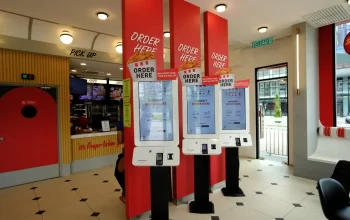Thanks to Gavin Newsom, tax dollars meant to create water storage facilities are being used to demolish dams. That means needed water will not be available. But he is taking credit for allowing 30% of the needed water to be available instead of 15%. He wants you to applaud his disaster. Why is the cost of food so high? Because the cost of water is high. Why is it high? Because Newsom has made it a limited commodity.
“The Department of Water Resources (DWR) today announced a second increase in the State Water Project (SWP) allocation forecast for 2024. The forecasted allocation is now 30 percent of requested supplies, up from the 15 percent allocation update announced last month. The State Water Project is a critical water source for 29 public water agencies that serve 27 million Californians.”
Now you know why Newsom threw California into the Doom Loop.
State Water Resources: We Will Allocate 30% of needed water to farmers
Department of Water Resources, 3/22/24 : https://mavensnotebook.com/
The Department of Water Resources (DWR) today announced a second increase in the State Water Project (SWP) allocation forecast for 2024. The forecasted allocation is now 30 percent of requested supplies, up from the 15 percent allocation update announced last month. The State Water Project is a critical water source for 29 public water agencies that serve 27 million Californians.
The revised allocation forecast is based on snow survey measurements and data up until March 1 and spring runoff forecasts outlined in the latest Bulletin 120, which was released on March 8. The next possible allocation update would come after the next round of snow surveys around April 1. Currently, the statewide snowpack is 98 percent of average for this date.
The State Water Project has been focused on maximizing the capture and storage of water from this winter’s storms. Storage has increased by 630,000 acre-feet at Lake Oroville and by 150,000 acre-feet at San Luis Reservoir since January 1. The ability to move water south through the system has been significantly impacted by the presence of threatened and endangered fish species near the State Water Project pumping facility in the south Delta. The presence of these fish species has triggered requirements within the State and federal permits for the operation of the State Water Project and the federal Central Valley Project that have significantly reduced pumping from the Delta. This reduction in pumping has limited the ability to move water into San Luis Reservoir.
“DWR continues to take proactive measures and use the best available science to operate our water storage and delivery system to balance water supply needs while protecting native fish species,” said DWR Director Karla Nemeth. “As we experience more extreme weather conditions, each year brings its own challenges and that’s why it’s so critical to continue to adapt our water system to build climate resilience.”
DWR’s efforts to adapt to a changing climate include the advancement of the Delta Conveyance Project, which would construct new infrastructure that will make it possible to move more water during high flow events while helping fish species like Steelhead trout avoid threats posed by current pumping infrastructure.
Additionally, DWR and its state, federal, and local partners continue to invest in groundwater recharge projects, surface water storage like Sites Reservoir, and the expansion of desalination and stormwater capture.
California’s reservoirs remain in good shape thanks to last year’s strong winter storms. Statewide, reservoirs are at 115 percent of average for this time of year, with Lake Oroville, the State Water Project’s largest reservoir, at 125 percent of average and 86 percent of capacity.
The updated State Water Project allocation forecast announced today anticipates delivery of 30 percent of requested supplies to contractors south of the Delta, which accounts for the majority of contractors; 50 percent of requested supplies to contractors north of the Delta; and an anticipated 100 percent allocation to Feather River Settlement Contractors.
Allocations are updated monthly as snowpack, rainfall, and runoff information is assessed, with a final allocation typically determined in May or June following the April snow survey. The next possible allocation update would be in April.



